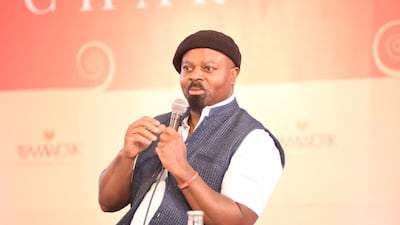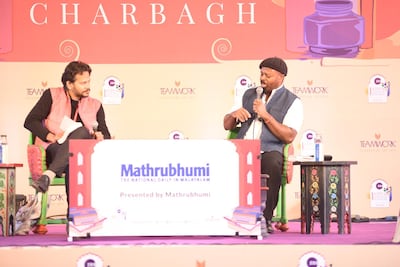Booker Prize-winning author Ben Okri has suggested that it's time for the prestigious British literary award to move towards "a different kind of sponsor", following the news that the hedge fund Man Group will withdraw its support next year after nearly two decades.
'It will get bolder'
In an exclusive interview with The National, Okri, who won the Booker Prize in 1991 for The Famished Road, argued that a "less corporate" sponsor might be appropriate and that the prize will now "go from strength to strength".
“I don’t think that Man Group stepping back will in any way diminish the Booker Prize,” Okri said. “I don’t think that for one second. I think you will see that the prize will go from strength to strength. It will get freer; it will get bolder.
A corporate vision
“All sponsorship [agreements] come to an end and Man Group have been excellent sponsors […] Now it’s time to move to a whole new generation of sponsor, maybe even a different kind of sponsor.
“Big corporations are withdrawing their funds from the arts, which actually may be a good thing. They sometimes bring with them difficult requests."
When asked if there was an inevitable conflict between a literary award and corporate sponsorship, Okri, who said that winning the prize has been “tremendously liberating for my life”, responded: “There doesn’t have to be, and I think it really just depends on the corporation’s vision of their role in the human story. If their vision is that it’s really about profit, then why would you enter into sponsorship of the arts?
“But if you see your role as contributing something to the human story and to culture, then it’s not a problem. It’s a matter of how they receive their remit.”
The winner of the Man Booker Prize receives £52,500 (Dh255,000), although the bigger benefit is seen as a spike in sales, which invariably follow.
Previous winners include V S Naipaul, Iris Murdoch, Salman Rushdie, J M Coetzee, Kingsley Amis, Kazuo Ishiguro, A S Byatt and Ian McEwan among others.
Last year, author Anna Burns won for her novel Milkman, making it the first time a Northern Irish writer had been awarded the prize.
Is Man Group 'the enemy'?
Sebastian Faulks, who has never been longlisted for the Booker Prize, said last year that the hedge fund was “the enemy” and that “they were not the sort of people who should be sponsoring literary prizes; they're the kind of people literary prizes ought to be criticising.”
Okri, however, who was speaking at the Jaipur Literary Festival, said he was "not given to perceiving one group of people as the enemy".
“I can’t do that as a writer, I’ve got too much interest in human beings, regardless of what it is that they do,” he said. “But we should be careful of who sponsors important prizes because, if they’re the wrong kind of people, with the wrong kind of interest, they taint the process.”



